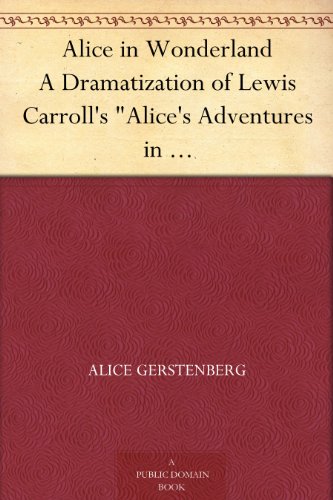
Author
Alice Erya Gerstenberg (2 August 1885 – 28 July 1972) was an American playwright, actress, and activist best known for her experimental, feminist drama and her involvement with the Little Theatre Movement in Chicago. Gerstenberg was born in Chicago, Illinois, the only child of Julia and Erich Gerstenberg. Gerstenberg’s grandfather was a founder and member of the Chicago Board of Trade in 1848, a position Gerstenberg’s father inherited later on. Due to this, the Gerstenbergs enjoyed a higher standard of living than most middle-class families in Chicago at the time. Growing up, Gerstenberg had ample travel experiences and social indulgences including commercial theater. She attended a private school in Chicago and later graduated from Bryn Mawr, a women’s college in Pennsylvania, in 1907. After college, she spent some time in New York watching the rehearsals of David Belasco before returning home to Chicago. After living in New York for a period, Gerstenberg returned to Chicago, where she continued to write plays; became involved with the Little Theatre movement, supported her parents, and exercised a strong feminist dedication to bringing non-commercial theater to new playwrights, children, and Chicagoans. Her previous involvement with the theater during her childhood, the plays she wrote at college, as well as the time spent in New York led her to continue writing plays for the rest of her life, working occasionally as an actress, and maintaining an activist role in the theater. Although the majority of her plays have largely been forgotten, her magnum opus Overtones has continued to be produced since its publication in 1913. In 1913, Gerstenberg wrote Overtones, a one-act play, her second stage play, and her most frequently performed and printed, which was first produced in November 1915 by the Washington Square Players at the Bandbox Theater in New York. It has been anthologized alongside Susan Glaspell’s Trifles as a textbook case of modern one-act plays by women involved in the little theater movement. The play crystallizes her use of experimental form with a familiar dramatic conflict. The play enjoyed many productions due to its innovative use of the split subject, a technique Eugene O'Neill would later use in his play Strange Interlude. Gerstenberg continued to write many one-act plays early on in her career, many of which were performed by regional or little theaters in and around Chicago. The majority of these plays demonstrate her feminist tendencies – critiquing the social roles and decision which constrained women of the time. Gerstenberg continued to write plays throughout her life, later on publishing several radio plays as well as several commissioned dramatizations of children’s stories. Gerstenberg’s influence on the theater is not limited to her early experimental forms; she played a crucial role in the foundation and success of several theater companies as well as the Little Theater Movement in Chicago. In 1921, she founded the Junior League Children’s Theater in Chicago; in 1922 she founded the Playwrights Theater; and finally she supported an amateur theater company which was eventually named for her at its foundation in 1955. Her work with these theater companies demonstrates her commitment to making non-commercialized theater available to new playwrights, giving them the opportunity to see their plays produced; regional playwrights, demonstrating an appreciation for Chicago and the Midwest; and finally to children, giving them an early experience with the theater, the opportunities to act, write, and become involved. Furthermore, she hoped that her work would bring Chicagoans to support non-commercial theater. Gerstenberg was one of a handful of women invited to speak at the National Drama Council and National Theatre Conference in 1936, an invited speaker at three A.E.T.A conferences, and won the Chicago Foundation for Literature Award in 1938. Gerstenberg remained involved in the theater th